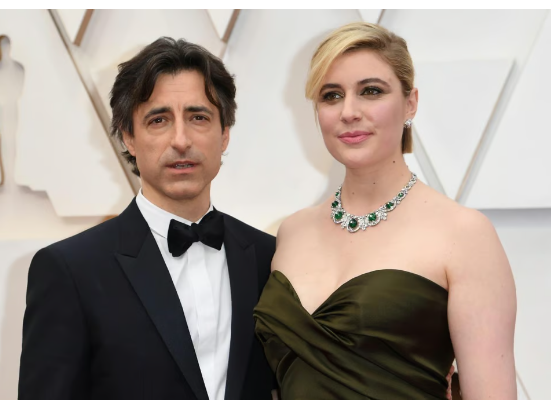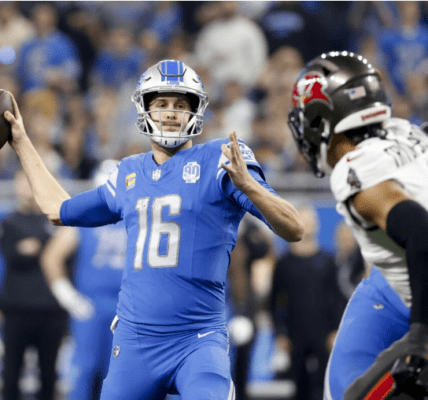- Homepage
- Person in News
- Unwrapping the Snub: Greta Gerwig, Margot Robbie, and the Barbie Backlash at the Oscars
Unwrapping the Snub: Greta Gerwig, Margot Robbie, and the Barbie Backlash at the Oscars
In the dazzling world of Hollywood, where creativity and innovation should be celebrated, the recent Oscar nominations left an unexpected trail of controversy. Greta Gerwig‘s Barbie, a film that dared to challenge stereotypes and serve as a subversive cultural statement, found itself entangled in the web of snubs and oversights, leaving fans and industry insiders alike in a state of bewilderment.
The Shocking Omissions

Barbie’s journey to the Oscars was nothing short of extraordinary, with the film receiving a nomination for Best Picture, a testament to its cultural impact and critical acclaim. However, the omission of Greta Gerwig from the Best Director category and Margot Robbie from the Best Actress category sparked a flood of outrage that reverberated across the internet and within the film industry.
The Associated Press went so far as to call Gerwig’s snub “one of the biggest shocks in recent memory,” underlining the magnitude of the disappointment felt by those who recognized the film’s groundbreaking nature. The absence of recognition for two key figures in the film, Gerwig and Robbie, raised questions about the industry’s lingering sexism and its reluctance to take a toy-based film seriously.
A Patriarchal Backlash
Some astute observers pointed out the irony of Ryan Gosling, nominated for supporting actor, seemingly receiving more recognition than Gerwig and Robbie combined. A user on X, quoted by USA Today, remarked that Gosling’s nomination “kind of proves the point of the movie,” emphasizing the continued presence of patriarchy in the film industry. Ken himself, portrayed by Gosling, voiced his support for Gerwig and Robbie, stating, “There is no Barbie movie without Greta Gerwig and Margot Robbie, the two people most responsible for this history-making, globally-celebrated film.”
The film’s narrative, cleverly wrapped in a buoyant, candy-colored cloud, undermines stereotypes about women with meta-wit, encapsulated in Robbie’s character being named Stereotypical Barbie. However, Oscar voters seemed unable or unwilling to look beyond the surface, dismissing it as a mere billion-dollar popcorn movie rather than recognizing its inventive, subversive qualities.
The Academy’s Oversight
With 10 films vying for Best Picture and only five slots for directors, the competition was fierce. However, it is conspicuous that Gerwig, despite Barbie’s Best Picture nod, was seemingly displaced by directors of smaller, sober films. Justine Triet, nominated for Anatomy of a Fall, and Jonathan Glazer, recognized for The Zone of Interest, occupied slots that could have gone to Gerwig. The light-handed comedy of Barbie, despite its imaginative and substantial qualities, seemingly struggled to break through the Academy’s preferences.
Hints of Underestimation

The underestimation of Barbie’s originality began even before the nominations were announced. The Academy’s decision to categorize Gerwig and Noah Baumbach’s screenplay as adapted, rather than original, raised eyebrows. The executive committee justified this move by claiming the film was based on a previously existing character – a doll. This decision, whether tone-deaf or rigid, hinted at a potential underestimation of the script’s inventiveness.
Further clues emerged at the Golden Globes, where Barbie failed to win the best comedy or musical category but received the cinematic box office achievement award. While this newly-invented accolade acknowledged the film’s popularity and financial success, it also hinted at a possible disregard for its artistic and narrative merits.
The Corporate Quandary
Barbie’s complex relationship with money and corporate culture added another layer to its Oscars journey. The film criticizes Mattel, the company responsible for the iconic Barbie dolls, as obtuse and patriarchal, yet the movie itself is a major studio production licensed by the toy company. This juxtaposition led to divided opinions, with some viewing the film as slickly subversive and others seeing it as inescapably corporate.
Oscar voters, it seems, opted to view Barbie as just another studio blockbuster, overlooking its cultural resonance and freshness. This aligns with a recent trend where big commercial movies, including Dune, Top Gun: Maverick, and Avatar: The Way of Water, enter the Best Picture race, only to have their directors ignored.
Read More:
- Terry Rozier: A Journey of Grit and Glory in the NBA
- Tragic Border Drownings Escalate Texas-Biden Rift: A Deepening Humanitarian Crisis
In conclusion, the Barbie backlash at the Oscars exposes a deeper issue within the film industry – a reluctance to embrace innovation and a tendency to dismiss films based on their perceived surface qualities. Greta Gerwig’s vision, Margot Robbie’s performance, and the film’s cultural impact deserve recognition beyond the confines of stereotypes and preconceived notions. As the industry grapples with the aftermath of this snub, the legacy of Barbie as a groundbreaking cinematic achievement will persist, challenging the status quo and pushing for a more inclusive and open-minded approach to storytelling.




